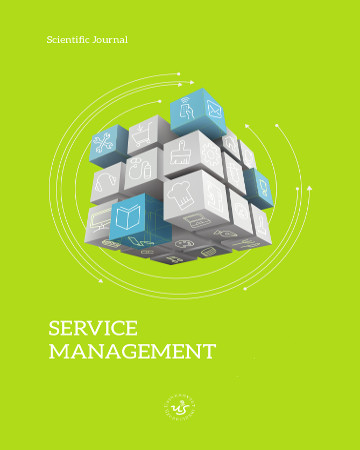
ISSN: 2450-8535
eISSN: 2451-2729
OAI
DOI: 10.18276/ejsm.2018.27/2-63


Lista wydań /
Vol. 27/2, 3/2018
Balanced Scorecard as a tool for application of EU assistance into innovative development of tourist companies
| Autorzy: |
Beata
Wierzbicka
University of Gdańsk, Faculty of Management Jędrzej Strumiłło University of Gdańsk, Faculty of Management |
| Słowa kluczowe: | Balanced Scorecard tourism European Union funds |
| Data publikacji całości: | 2018-12-31 |
| Liczba stron: | 8 (513-520) |
| Klasyfikacja JEL: | L26 L83 Z32 |
Abstrakt
Staying on the market in a turbulent environment requires tourism companies to be flexible in their activities and abilities to anticipate the direction of those activities. In order to achieve and maintain long-term profitability, companies must determine and implement adequate strategies as well as asses them in accordance with appropriate criteria. In the work, the authors present the Balanced Scorecard (BSC) as a tool for application of EU assistance into the process of innovative development of a tourism company. Inspiring to examine the investigated company from four different perspectives, the results of the company’s activity have been presented via a balanced system of BSC indicators.
Pobierz plik
Plik artykułu
Bibliografia
| 1. | Brzóska, J., Karbownik, A., Kruczek, M, Szmal, A., Żebrucki, Z. (2012). Strategiczna Karta Wyników w teorii i praktyce. Gliwice: Wydawnictwo Politechniki Śląskiej. |
| 2. | Doyle, P. (2003). Marketing wartości. Warszawa: Felberg SJA. |
| 3. | Kaplan, R.S., Norton, D.P. (2002). Strategiczna Karta Wyników – Balanced Scorecard, Praktyka. Warszawa: Centrum Informacji Menedżerów. |
| 4. | Kasprzak, R, (2016). Fundusze unijne szansa na rozwój małych i średnich przedsiębiorstw. Budżet na lata 2014–2020. Gliwice: Helion. |
| 5. | Olszewska, B. (ed.) (2008). Zarządzanie strategiczne. Przedsiębiorstwo na progu XXI wieku. Wrocław: Wydawnictwo Uniwersytetu Ekonomicznego we Wrocławiu. |
| 6. | Pender, L., Sharpley, R. (2008). Zarządzanie turystyką. Warszawa: PWE. |
| 7. | Sławińska, M. (2002). Zarządzanie przedsiębiorstwem handlowym. Warszawa: PWE. |
| 8. | Trocki, M., Grucza, B. (2007). Zarządzanie projektem europejskim. Warszawa: PWE. |
| 9. | Weiermair, K., Mathies, C. (2004). The tourism and leisure industry: shaping the future. Binghampton: Haworth Hospitality Press. |
| 10. | www.mir.gov.pl/fundusze/fundusze_europejskie (29.09.2017). |